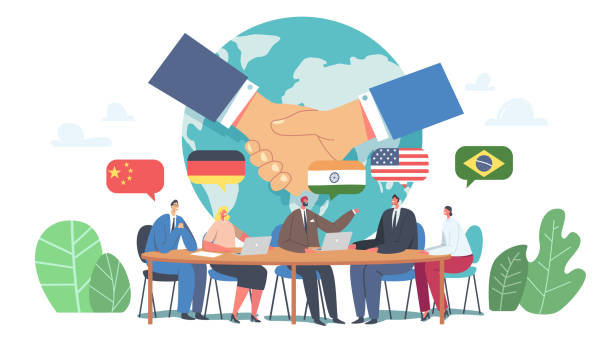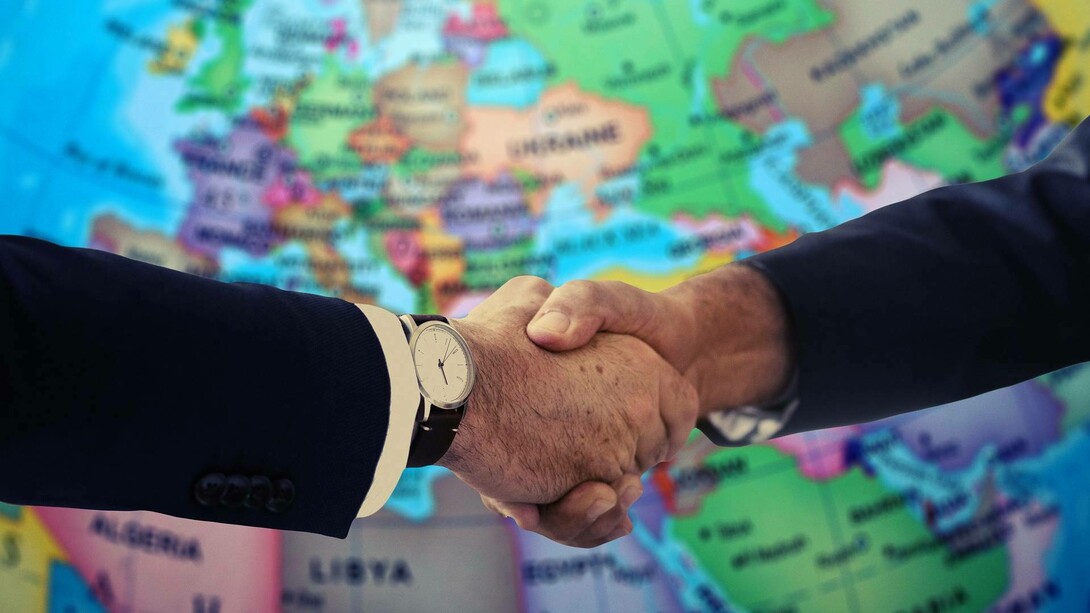Global Affairs: Exploring International News and Its Impact on Diplomacy
In an increasingly interconnected world, international news has become a vital source of information that shapes the political, economic, and cultural landscapes across the globe. From conflicts to trade agreements, environmental issues to human rights, the stories emerging from every corner of the world are pivotal not just for understanding global events, but also for their influence on diplomacy. Diplomatic relations between countries are often driven by the narratives presented in the media, which can shape public opinion, inform policy decisions, and sometimes even alter the course of international relations.
Let’s explore how international news impacts diplomacy and how global events are reshaping the diplomatic landscape today.

The Role of International News in Shaping Diplomacy
International news serves as a key medium through which countries communicate their policies, values, and interests to the rest of the world. The media often acts as a bridge between governments, citizens, and international stakeholders. Diplomatic relations are not only influenced by direct communications and negotiations but also by how these relationships are reported and perceived globally.
Media as a Diplomatic Tool
Countries use media to strengthen alliances, criticize adversaries, and highlight issues of national importance. For instance, a country may strategically release statements or reports to sway international opinion on a specific matter, influencing global diplomatic sentiment. Similarly, international news outlets play an essential role in scrutinizing foreign policies, promoting transparency, and holding governments accountable for their actions, whether that’s related to war, trade deals, or environmental commitments.
Shaping Public Opinion
Media coverage can shape how a particular diplomatic event or issue is perceived, both domestically and abroad. In democracies, the public opinion influenced by news media can, in turn, pressure governments to adjust foreign policies. For example, widespread media coverage of human rights violations in another country can lead to international condemnation and diplomatic pressure. Conversely, governments might use media to create a favorable image abroad, attempting to influence the public narrative in their favor.
Global Conflicts and Their Diplomatic Consequences
Conflict zones often become hotbeds for international news, with events like wars, revolutions, or peace talks receiving widespread attention. These events can significantly impact diplomacy, as countries react to crises, form coalitions, or impose sanctions. The way such events are covered in the media has immediate and lasting effects on diplomatic ties.
International Reactions to Conflict
When a country is involved in or is affected by international conflict, the diplomatic response often follows media narratives. Take, for example, the global reaction to the Russia-Ukraine conflict. The extensive international media coverage of Russia’s invasion of Ukraine has led to widespread sanctions, military aid for Ukraine, and a reimagining of alliances, such as the strengthening of NATO. These diplomatic actions were not just based on diplomatic negotiations behind closed doors but were also driven by the narratives emerging from media reports, which shaped how the world viewed the conflict.
Mediated Peace Efforts
On the other side of the coin, international news plays an essential role in peacebuilding. High-profile media coverage of peace agreements or ceasefires, such as the Iran Nuclear Deal or peace accords in the Middle East, can build momentum for diplomatic solutions. News outlets often highlight the efforts and challenges of diplomatic negotiations, providing transparency to the public and fostering international support for peaceful solutions.
Trade and Economic Diplomacy: How Global News Influences Commerce
Economic diplomacy is another crucial arena where international news plays a decisive role. Trade agreements, tariffs, sanctions, and financial crises are often covered by the media, and the way these events are portrayed can influence the economic policies of governments worldwide. The global market is highly sensitive to the news, and international relations can shift based on reports about economic performance or political stability.
Impact of Economic News on Global Trade
News reports about trade negotiations, such as the U.S.-China trade war or Brexit’s economic implications, directly affect the decisions made by businesses, investors, and governments. For example, when media outlets report on the imposition of tariffs or trade restrictions, companies may adjust their supply chains or investment strategies to mitigate potential risks. Similarly, media coverage of economic crises can cause fluctuations in stock markets, currency values, and international investment patterns.
Influence on Foreign Policy and Sanctions
News coverage can also influence countries’ foreign policies in terms of imposing or lifting sanctions. The global news narrative surrounding a country’s human rights violations, military actions, or environmental policies may lead to economic sanctions or trade embargoes, as seen in the cases of North Korea or Iran. Diplomacy, in these cases, becomes a balancing act between maintaining international relations and responding to public pressure fueled by news stories.
Human Rights and Environmental Issues: Diplomacy at the Crossroads of Global Responsibility
International news often shines a spotlight on issues related to human rights and environmental protection, which are central to global diplomacy. In an age of growing awareness of social justice, climate change, and inequality, international media plays a key role in exposing violations and pressuring governments to act.
Human Rights and Global Pressure
News outlets worldwide report on human rights abuses, such as political repression, discrimination, or violations of international law. As these stories gain attention, diplomatic pressure builds. Governments may be compelled to impose sanctions, sever diplomatic ties, or support international efforts to address these issues. In many instances, international organizations such as the United Nations or NGOs depend on media coverage to keep human rights violations in the public eye, ensuring that governments take meaningful action.
Climate Change and Global Diplomacy
Similarly, climate change is a global issue that requires extensive diplomatic cooperation, and news outlets have played a pivotal role in shaping the narrative around environmental policy. International news coverage of climate disasters, such as wildfires, hurricanes, and floods, can drive diplomatic action on environmental agreements. For example, the 2015 Paris Agreement was greatly influenced by global media coverage of climate change’s potential impact on vulnerable populations. As news outlets continue to report on environmental issues, they fuel diplomatic efforts to negotiate and implement international environmental policies.

Diplomatic Challenges in the Digital Age
In the modern world, the way news is disseminated has undergone a dramatic shift, and this has profound implications for international relations. The advent of digital media and social platforms has created both opportunities and challenges for diplomacy.
Social Media and International Relations
Social media platforms like Twitter, Facebook, and Instagram have become essential tools for diplomats to communicate directly with foreign publics and governments. However, they have also become arenas for misinformation, political influence, and public outcry. When diplomatic tensions are reported or misreported on social media, it can quickly escalate conflicts or fuel nationalistic rhetoric. The rapid spread of information on digital platforms can bypass traditional diplomatic channels, making it more challenging for governments to control narratives and manage relations.
The Rise of Citizen Journalism
With smartphones and easy access to the internet, citizens around the world are now contributing to international news. Citizen journalists can provide real-time updates from conflict zones, expose human rights violations, or offer firsthand accounts of political events. While this democratization of news provides a broader perspective, it also complicates diplomacy, as governments may have to respond not only to traditional media outlets but to the public voices of ordinary citizens.
Conclusion: The Intersection of Global News and Diplomacy
International news has a profound impact on diplomacy, influencing everything from public opinion to trade relationships, human rights advocacy to environmental action. As the world becomes increasingly interconnected, the flow of information through media channels will continue to shape diplomatic decisions and global relations. In this era of rapid news cycles and digital media, the role of journalism in diplomacy has never been more critical. Governments, organizations, and individuals alike must navigate this landscape carefully, understanding the power of news and its potential to shape the future of global affairs.












